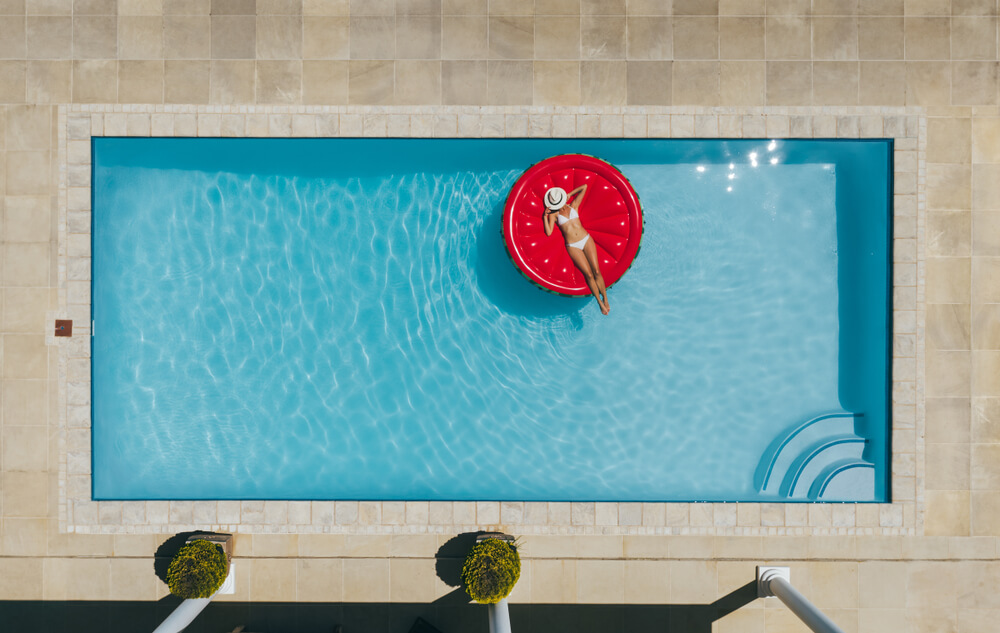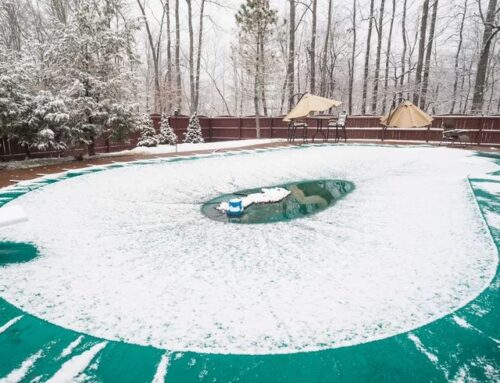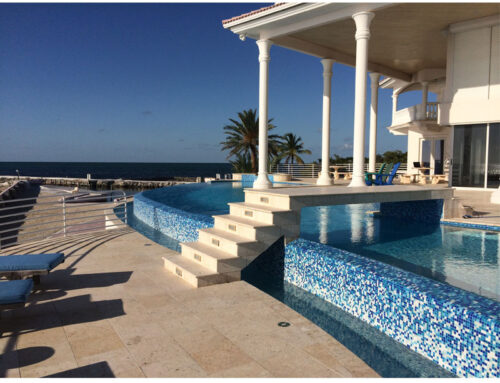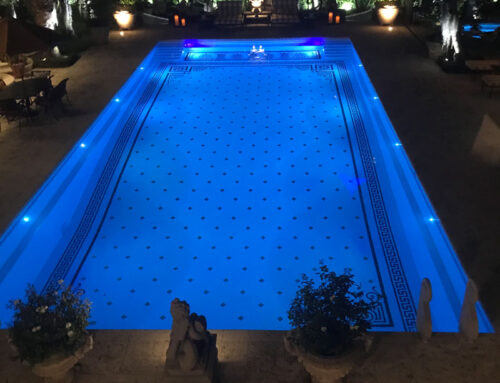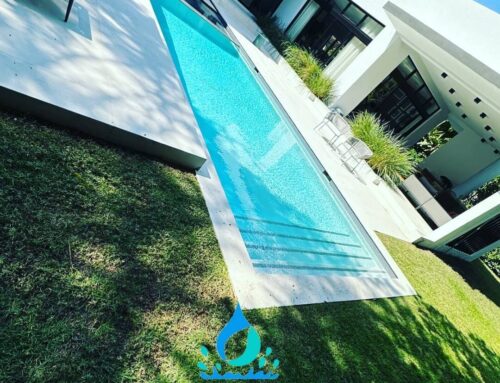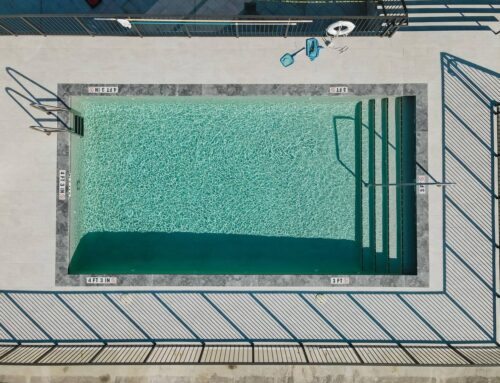Picking out the right pool for your home can be pretty daunting. You have to consider what would suit your situation best and balance it with what adds the most value to your property.
It doesn’t help that pools are often one of the most expensive additions you can make.
There are many types of swimming pools to choose from, and each has its benefits and drawbacks. In this article, we’ll go over what the different types of pools are and their respective pros and cons.
By the end, you’ll have a good idea about what best suits your needs and budget.
In-ground Vs. Above-ground Pool
In the broadest sense, pools branch out into above-ground and in-ground pools. The names explain their fundamental differences, with one installed on your property and the other carved into the ground.
There are some benefits to owning an above-ground pool. They’re easier to install and more budget-friendly. However, when you take everything into account, they’re not an ideal choice.
In-ground pools carry a more substantial initial investment, but they’re much less visually intrusive and last longer.
Moreover, in-ground pools do something very important; they add value to your home. Above-ground pools are considered a temporary addition, and so don’t add substantial value. An in-ground pool will pay for itself in the long run.
The types of above-ground pools, therefore, fall outside the scope of this article. Instead, we’ll focus on the kinds of in-ground pools and their characteristics, starting with fiberglass.
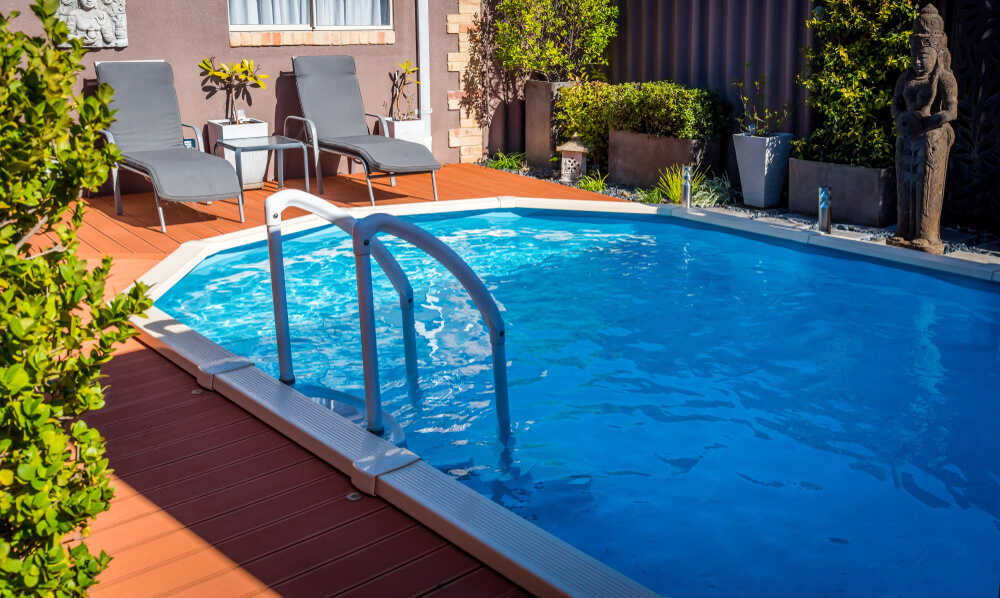
Fiberglass Pools
Once completed, fiberglass pools become a one-piece laminated structure that lines your pool basin.
The fiberglass shell is manufactured off-site. After initial preparation, the installation can be completed within two days.
Depending on the manufacturer, fiberglass pools can have more or fewer layers. However, every fiberglass pool has a gel coat layer. That’s the very first layer, and it’s an essential advantage that fiberglass pools have over concrete ones.
The gel coat layer is smooth and non-porous. A non-porous layer makes maintenance much easier since there are no nooks and crannies in which algae can start growing.
Fiberglass shells are also very robust and durable. There’s no danger of puncturing or breaking them with regular use.
This swimming pool type also offers a wide range of aesthetic choices. There are a variety of color finishes and other features available from a large number of manufacturers.
The biggest selling point of fiberglass pools is the low maintenance cost. In the long run, a fiberglass pool is likely to cost less than either vinyl or concrete.
The one big drawback they have is the absence of customization of the shell itself. It comes entirely fabricated and can’t be changed. So, while there are numerous sizes and shapes, it’s never a shape that was specifically designed for your property and to your specs.
Vinyl Liner Pools
Again, the name is pretty self-explanatory. A layer of vinyl covers the pool basin instead of fiberglass or concrete.
And again, there are some significant benefits to choosing a vinyl liner pool. The most salient benefit is their price point. Vinyl liners are substantially less expensive than either fiberglass or concrete.
If you want to set up an in-ground pool quickly and on a tight budget, the vinyl-lined pool is your best bet. They’re relatively easy and quick to install, as well.
They also offer a wide variety of “poolscape” options. Vinyl layers come in many colors and they can be switched if you want to give your pool a makeover.
One of the most significant drawbacks of vinyl pools is that the liner has to be replaced periodically. Typically, you’ll need to replace the liner every five to ten years. Some may last longer with care and the right conditions, but that’s a good ball-park number.
While some liners come with multi-decade warranties, those warranties are often misleading. They may cover only parts of the liner or have pro-rating clauses.
Concrete Pools
Concrete pools are, hands-down, the most customizable and adaptable. However, that flexibility comes at a price.
If you can dream up a shape, a concrete pool can deliver it. Every concrete pool is made to fit the property that it’s on.
Moreover, they’re the most durable option. The odds of damaging it with daily use are negligible. But, while they’re tough, they don’t last quite as long as fiberglass pools on average.
The most significant disadvantage you’ll see is the increased maintenance costs. Acid washes every few years, replastering, and chemical usage will take their toll on your wallet over time.
The Perfect Pool
So, is there a perfect pool out there? In short, no. However, there is a perfect pool out there for you. If you want a pool that’s easy to maintain but gives you fewer design options, fiberglass is the right choice. Need an affordable pool installed yesterday? Go for the vinyl liner. If money is no object, and you want to add the most value to your home, concrete pools are your best bet.
For more information about types of swimming pools and how to select the right one, contact us today. At Florida Pool and Patio, we’re passionate about pools, and one of our experienced representatives will help you choose the best pool for your home.

